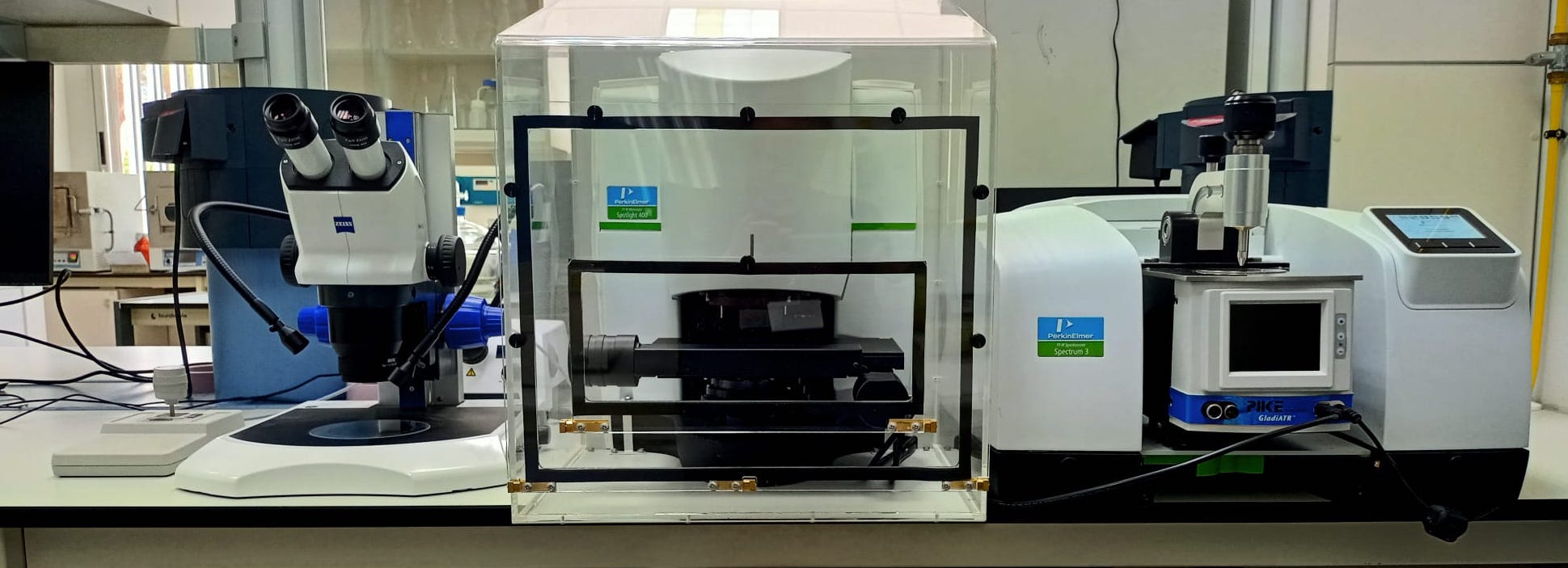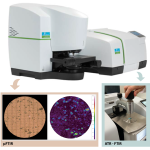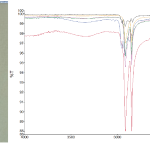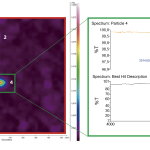Microplastics analysis

The global use and disposal of plastic materials has led to find them as small-degraded pieces (microplastics) in different environments (water, sediment, air, biota, and others). To study this type of particle, INMAR has a microplastics analysis service that offers the analysis of particles of different sizes using infrared spectroscopy (FFTIR and μFTIR), as well as an advisory and consulting service related to the chemical characterization of these microplastics.
The technique used is based on the interaction of infrared light with the molecules of the sample, giving rise to infrared absorption spectra in which it is possible to detect characteristic bands to identify substances. This technique is commonly used for the analysis of microplastics from a variety of samples (water, sediment, biota, etc.) but can also be used for other types of applications. Depending on the particle size, two analysis approaches are proposed:
- Fourier transform infrared spectroscopy with ATR accessory (ATR-FTIR). For plastic items >0.5 mm.
- μFTIR infrared spectroscopy based on chemical imaging (with IR compatible filters). For plastic items <0.5 mm. In this technique, optical microscopy and IR spectroscopy are combined and require prior filtering of the samples with filters compatible with infrared analysis. These filters can be scanned totally or partially, and IR images can be acquired.

Service location: INMAR laboratory no. 9 (INMAR/IVAGRO Research Institute Building, ground floor. Puerto Real University Campus, University of Cádiz).
To request the service, click on the following link: microplastics analysis service request
External users must register at the following link: CAU INMAR registration
For more information, please contact the research staff: elisa.marti@uca.es
Financing support:





